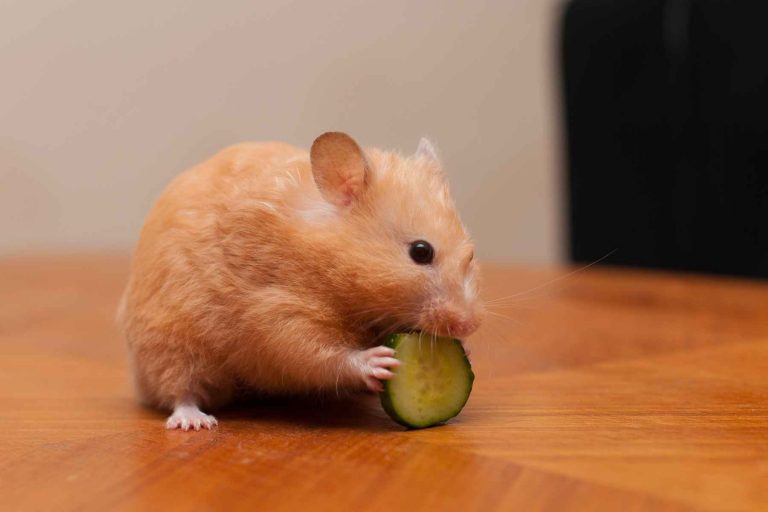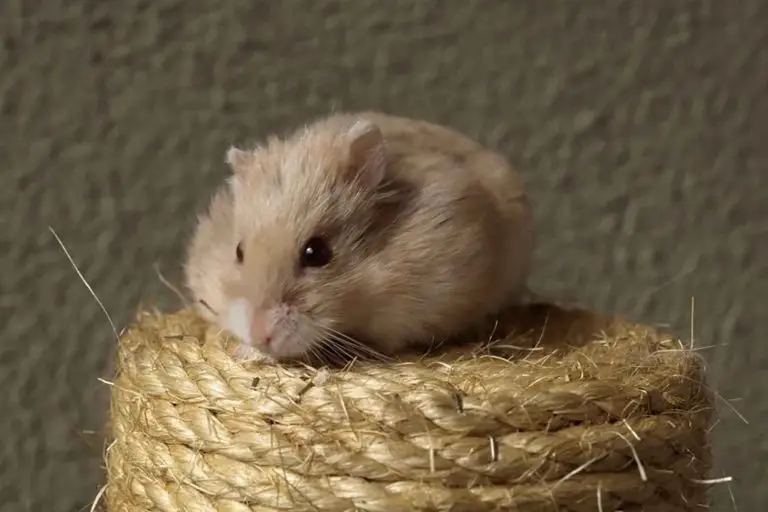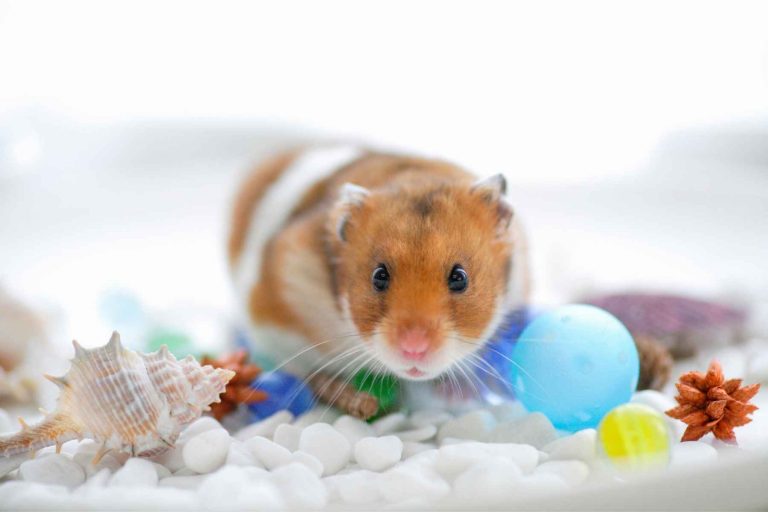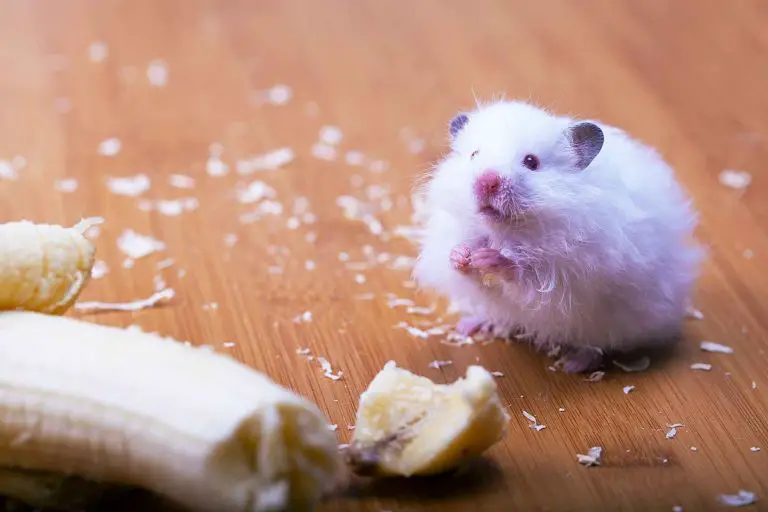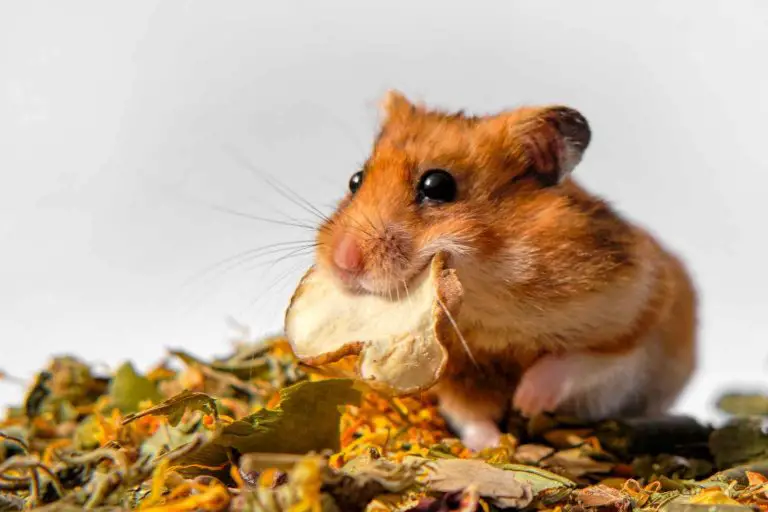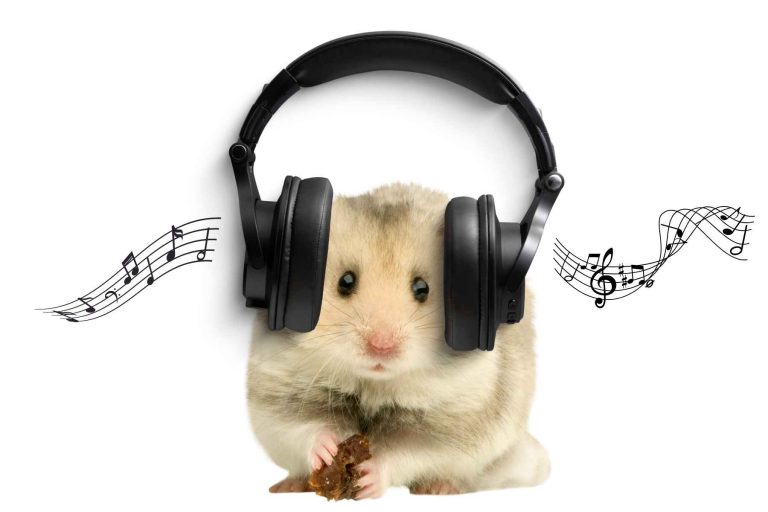Can Hamsters Eat Pineapple?
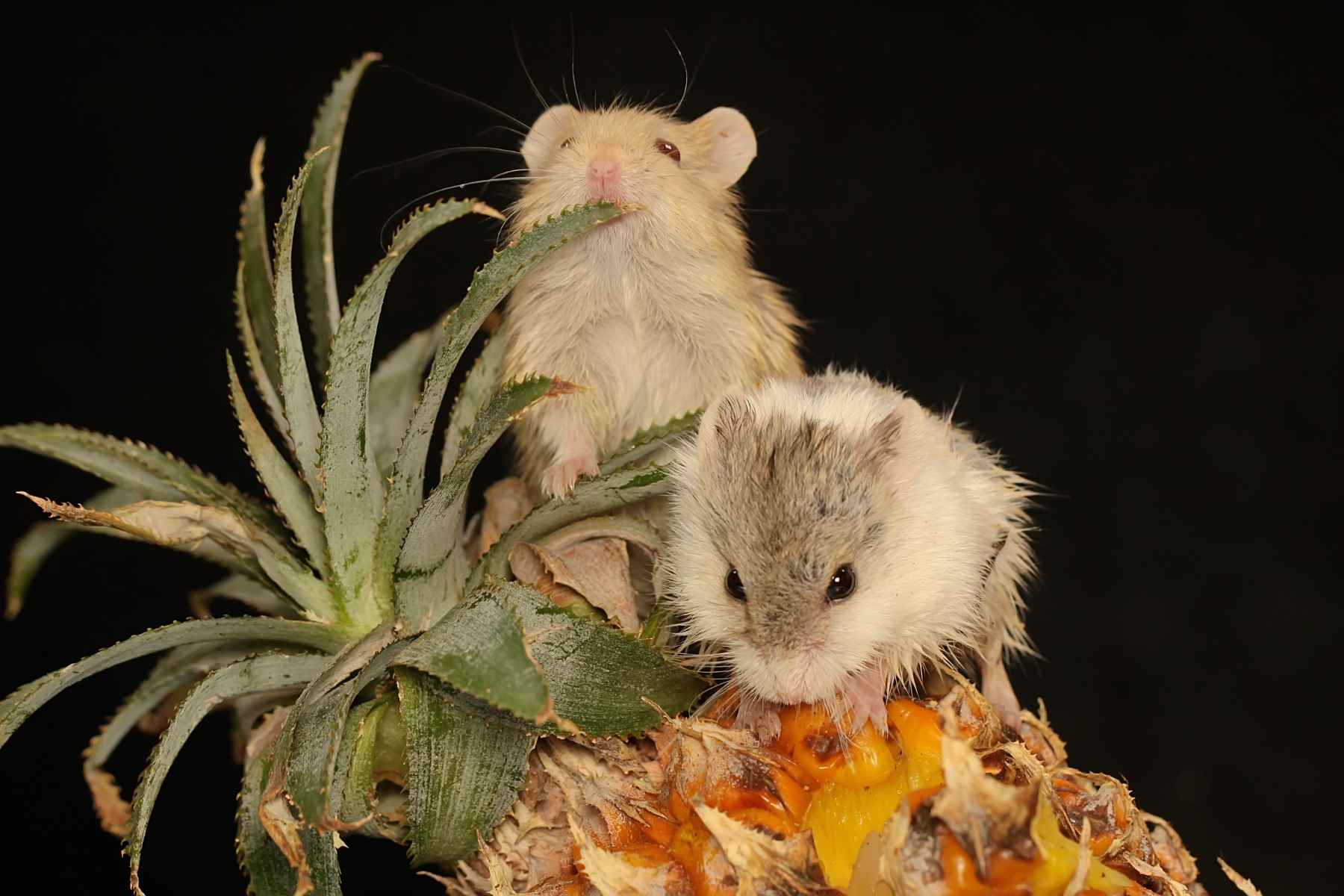
Hamsters make perfect little fuzzy companions for adults and children. You can get much cuter than the little creatures. Like all other pets, you need to be careful about what you feed them and, sometimes, they will have a special diet they should follow.
Among other things, you may be curious if hamsters can eat pineapple.
Yes, you can feed your little furry friend pineapple. The sweet and tart fruit can make an excellent snack for your pet hamster. However, you should provide it to them in small quantities and only occasionally as the fruit contains a lot of sugar and acid.
Throughout this article, we’ll explore more about the pros and cons of feeding pineapple to your pet hamster and how to add it safely to their diet. We’ll also discover what other fruits and vegetables they can eat and what their normal diets look like.
What are some benefits of feeding your hamster pineapple?
Similar to humans, there are some health benefits to feeding your hamster bits of pineapple. Packed full of nutrients, this sweet and delicious fruit can be a great addition to your hamster’s regular diet if provided in proper portions.
Some of the health benefits include:
- Extra Vitamin C helps to boost the immune system
- Added Manganese to aid the nervous system
- Antioxidants that help the hamster fight off diseases
- Increased fiber which helps to improve digestion
Like humans, hamsters need various nutrients to maintain a healthy balance. All of the extra nutrients in pineapples are great for your hamster and can improve its overall well-being.
Risks of Pineapple for Hamsters
Although pineapple can be a great addition to what your hamster eats daily, you need to be careful with how much you feed them in one sitting. Too much of the fruit can have adverse side effects for your pet. As the saying says, you really can have too much of a good thing.
Giving your hamster too much pineapple can lead to weight gain. This is because of the high levels of sugar within the fruit. If your hamster is eating more than they should, they’re likely to pack on some extra weight and will need to be on a more regimented diet to resolve the issue.
Another risk of feeding them too much could be developing digestive issues thanks to the high acidity in pineapple. Too much acid in your system can cause stomach issues and intestinal distress leading to an upset of the entire gut.
Pineapples in large quantities can also cause your hamster to lose out on other vital nutrients and vitamins. You must round out their daily diet with various foods they can eat.
It is also beneficial to have them on food specifically made for hamsters from the pet store so you can be sure they are getting everything they need to be healthy. Pineapple is a perfectly fine addition to their diet, but it shouldn’t make up the majority of their diet.
How to Feed your Hamster Pineapple
If you’re going to feed your furry little friend pineapple, you need to be sure you are providing it to them in a safe way. Hamsters, as you know, are tiny, which means they have very small mouths, throats, and stomachs.
To properly and safely feed your pet fruit, you should be sure you have cut it small enough that they can hold it in their paw easily and it fits in their mouth. A good rule of thumb is to cut the pineapple into chunks that are similar in size to their ear or paw.
Also, take extra care to ensure that the piece you are giving them is free of the skin and has no hard, unripe parts.
You should only feed your hamster the soft, fleshy parts of the fruit. If they swallow a hard piece, it could cause internal damage or lead them to choke on the pineapple.
Can you feed your hamster canned pineapple or pineapple juice?
Juice and fruit that comes canned may contain additives, extra sugars, or salt that can be harmful to them. It is best to steer clear of those varieties of fruit. It is not recommended to give your pet hamster pineapple from a can or pineapple juice.
You should only feed your pet fresh pineapple that has been cut and washed properly with the skin completely removed.
What to do if you feed them too much?
Sometimes, our pets are so cute and loveable, and we just want to give them all of the love and extra treats. However, giving your hamster too much pineapple can have negative consequences, as stated above.
Weight gain, digestive issues, and lack of other nutrients are risks of over-feeding hamsters pineapple.
If you suspect that you may have given your hamster more pineapple than is safe or recommended, you should seek the advice of your vet. They will be able to help you assess if you can observe your pet at home for a few hours or if it requires a visit to the vet’s office.
Do hamsters even like pineapple?
Like most other pets, hamsters tend to like most food that is out of the realm of their regular daily diet. They are usually used to eating the same thing over and over again, so anything that tastes and feels a little different, they are ready to try out!
The sugary fruit appeals to hamsters, and they’ll happily gobble up as much as you will let them have. If you’re unsure if your hamster will like the fruit, you can leave a tiny piece in their cage for them to find and see if they eat it.
If they curiously check the fruit out and then leave it, they must not be interested in it, and you can find another fun, healthy treat for them to try!
What is a normal diet for a hamster?
If you’re going to be giving your hamster pineapple to snack on, it is important that they have a healthy, rounded diet that meets all of their needs.
Many pet and specialty stores will carry food explicitly made for hamsters and their unique needs. Hamster pellets are packed with all of the nutrition your hamster needs to thrive. These pellets can be found readily at pet stores and serve as the primary food in your pet’s daily diet.
If you want to supplement their diet with different things, small amounts of birdseed can be given along with the pellets. Birdseed is an excellent source of healthy fats and can be a great addition to their meals.
You should only give them a very small amount of these seeds per week alongside their pellets.
If you feed your pet a healthy diet consisting of the items above, there is no issue with adding in pineapple every once in a while!
Can hamsters eat other fruit or vegetables?
If hamsters can eat pineapple, surely, they can eat other fruits and vegetables, right? Yes! Hamsters can eat a variety of fresh fruits and vegetables.
Hamsters love to nibble on all sorts of foods but always check that it is safe and small enough for them to consume.
Some of the fruits and vegetables they can safely eat include:
- Carrots
- Lettuce
- Green Beans
- Cucumber
- Celery
- Apples
- Strawberries
- Bananas
These are just a few of the wide variety of fruits and vegetables your pet hamster can eat. Most fruits and vegetables will be okay for your hamster to eat as they are packed with vitamins and minerals and not tons of extra calories.
It’s fun for you and your pet to explore and try new things! Try some of them out and see if your pet likes them. If you want more food suggestions to add to their diet, you can always consult with your vet for safe options.
Conclusion
As a pet owner, you always want to give your pet the best quality of life that you can, which means ensuring that their physical health is as good as possible. Pineapple can be an amazing source of added nutrients and antioxidants for your hamster.
Hamsters will readily eat the sweet and tangy fruit, so if you’re going to give some to your pet, be careful how much you allow them to have. You also need to ensure you only give them the softest part of the fruit, free from any skin or seeds. Hard, pointy parts can cause issues with their stomach and intestines.
Providing a variety of foods, including pineapple, in your hamster’s meals will most likely increase their physical well-being and happiness since they will be experiencing new and exciting foods.
So, go ahead and give your hamster pineapple, and you might just be delighted with how much your pet loves it and you!

